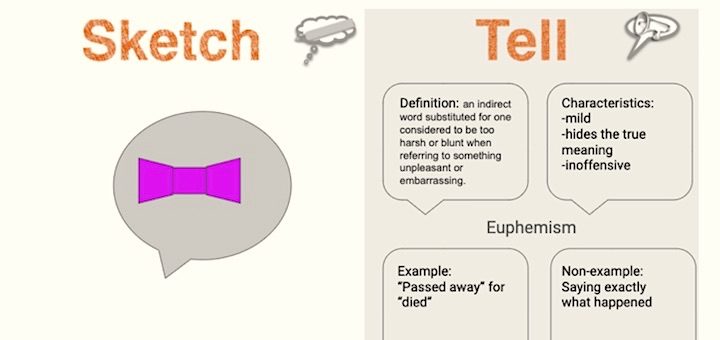Teaching and learning in grades 4-8
Our classrooms have been replaced for now by remote learning platforms, and the connection between students, parents, and teachers has taken on a whole new life. Elizabeth Stein considers how we can make the most of expanding our co-teaching relationships with parents.
The social studies classroom is an obvious place to examine current events, write teacher-authors Elisabeth Johnson and Evelyn Ramos. Highlighting “history in the making” helps students recognize that historical events don’t occur in a vacuum. Lots of quick lesson ideas!
Amid global fear and incredible teaching and learning challenges generated by the pandemic, Cheryl Mizerny has decided to take Mr. Rogers’ advice and look for the helpers. Here’s her list of six ‘silver linings’ she’s discovered as her school supports “virtual” students.
As schools enter another month of virtual learning, Megan Kelly has implemented elements of The EduProtocol Field Guide by Hebern and Corippo. Many of the free tools and activities translate easily into online practice, allowing her to create time-efficient new routines.
Future teacher Kara Tyler recommends Determining Difference from Disability to help teachers and parents respond to linguistically, culturally and socio-emotionally diverse students. Tyler appreciates the book’s opportunities for reflection and the range of resources.
Jeremy Hyler likes the power of infographics to engage students and differentiate instruction in science and ELA classes. Drawing on his recent book Ask, Explore, Write! An Inquiry-Driven Approach to Science and Literacy Learning, Hyler shares some remote teaching ideas.
Our deep dependency on media for everything from news and entertainment to mail-order buying underscores the urgent need for K-12 educators to make media literacy an essential part of the curriculum in today’s schools, writes author and consultant Frank W. Baker.
Words are a low-risk point from which to launch Students with Interrupted Formal Education on their schooling journey. One of the best ways to teach words is with the Picture Word Inductive Model (PWIM), a multi-step process to teach vocabulary. Tan Huynh shows how.
Helping students learn to read and love to read are two of the most important jobs of any teacher in the middle grades. You can’t do either without having robust libraries with books of all types, subjects, and levels. NBCT Rita Platt can help you build your collection.
In Becoming a Transformative Leader Carolyn M. Shields makes the case for equity and justice in our schools and suggests practical ways to examine them more deeply with colleagues and to assess progress toward achieving them, writes educator Chris Dransoff.







































